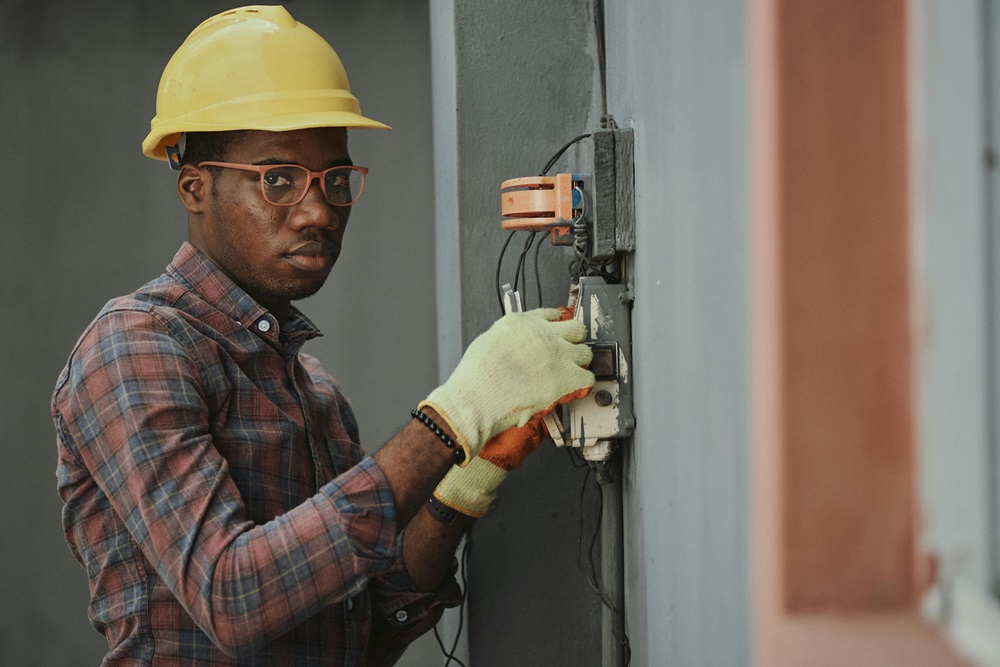Electrical issues in your home can range from minor annoyances to major fire hazards. Being aware of the warning signs of electrical problems allows you to address them promptly before they become dangerous or costly to repair. Here are 7 signs to watch out for that may indicate electrical issues in your home.
1. Frequent Tripping of Circuit Breakers or Blown Fuses
If the circuit breakers in your electrical panel often trip or fuses frequently blow, it likely means you have an overloaded circuit somewhere in your home. Too many devices running on one circuit can cause the wiring to overheat, triggering the circuit breakers or fuses to shut off power to prevent a fire. Track when and where the tripping occurs to locate the problematic circuit. Adding more circuits or redistributing devices among your existing circuits can help resolve chronic tripping issues.
2. Flickering Lights
Lights that periodically dim, brighten or flicker could signify a loose connection, outdated wiring or other electrical fault. Flickering lights should not be ignored, as they can escalate to more serious issues. Check all light fixtures on the affected circuit and contact a trusted Bristol electrician to inspect and repair any faulty wiring.
3. Odd Electrical Smells
Unusual odours like a burning plastic smell or metallic odour can indicate electrical problems and overheating wires. Never ignore strange electrical smells, as they can precede potentially dangerous electrical fires. Turn off appliances on any suspect circuits and have an electrician Bristol inspect them before using those plug sockets again.
4. Shocks and Tingling from Appliances
Tingling or shocks from metal fixtures like sinks, tubs or appliances can mean you have faulty wiring or a grounding problem. Faulty grounding prevents safe electrical discharge and raises the risks of electric shocks. Avoid using any sockets or appliances triggering shocks until an electrician checks for grounding issues.
5. Unusually High Utility Bills
If your electric bills keep rising with no explainable cause, one possibility is an electrical wiring issue. Faults like loose wiring connections can lead to wasted energy and spiking usage reflected in your bills. Schedule a full electrical inspection to uncover and fix any hidden problems lowering efficiency.
6. Buzzing and Crackling from Plug Sockets
Strange noises like buzzing, sizzling or crackling noises coming from plug sockets or switches often means you have a loose wire connection. This fault can allow electrical arcing between wires, producing unpleasant sounds and safety issues. Have an electrician tighten any loose wiring and examine your electrical panels for further damage.
7. Hot Plug Sockets and Switches
Sockets or switches that are hot to the touch likely indicate faulty wiring or loose connections. Excessive heat is a warning sign of potential electrical fire hazards. Discontinue use of any abnormally hot sockets and have an electrician thoroughly inspect the wiring.
How to Choose a Qualified Electrician
Here are some tips for choosing a qualified electrician in the UK:
- Check for proper certification – Electricians should be registered with a government-approved scheme such as NICEIC. This ensures they are qualified and follow industry regulations.
- Verify Gas Safe registration – For any work on gas appliances, the electrician must be Gas Safe registered specifically. Check for their Gas Safe ID number.
- Seek recommendations – Ask for referrals from friends, relatives, neighbours, etc. who have used electricians and were satisfied with the work. Check reviews on Trustpilot also.
- Compare quotes – Get quotes from 3-5 registered electricians. Compare costs for similar quality of materials and workmanship. Be wary of quotes that seem too high or low.
- Interview electricians – Meet in person, explain your electrical needs and judge who seems most knowledgeable and trustworthy. Go with your gut feeling.
- Check warranties – Opt for electricians who provide warranties on parts and labour for 1-5 years in case issues arise later on.
Vetting electricians thoroughly ensures you find someone certified, insured and qualified to provide safe, compliant electrical work on your UK home. Take the time to carefully evaluate options.
Acting quickly when you notice any of these warning signs can help prevent electrical emergencies like fires or electrocutions. Minor issues often worsen over time so addressing problems early provides long-term benefits and safety. Being alert to electrical hazards allows you to maintain a reliably safe and efficient electrical system in your home.
Photo by Emmanuel Ikwuegbu: https://www.pexels.com/photo/an-electrician-repairing-a-fuse-box-8005397/

